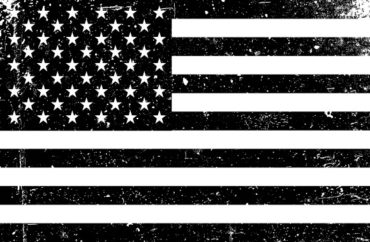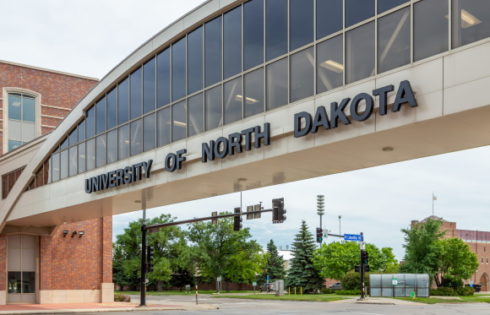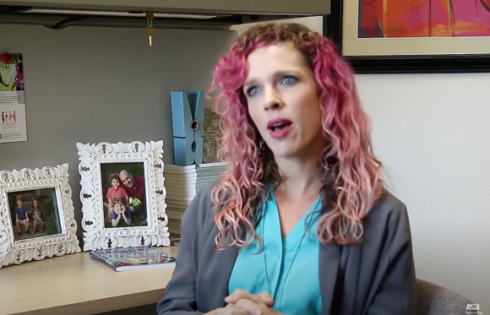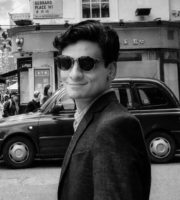
‘Nothing on Washington. Or Jefferson. Or Madison. Or Hamilton. Not a mention of Locke or Rousseau. None of that.’
DENVER — I can clearly recall the first day of class a few semesters ago when I eagerly began a course called “American Political Thought” at the University of Colorado, Denver.
My excitement quickly soured, however, after Professor Chad Shomura explained to the students in the room that most traditional “American Political Thought” courses are too focused on the achievements of white men.
As a consequence, he told us he had removed every single white male and their theoretical perspectives from the entire course curriculum.
This is echoed in the syllabus:
“This course aims to develop an understanding of American political life from the margins. Rather than surveying traditional figures of American political thought, it attends to historically marginalized voices at the crossings of race, gender, sexuality, and nation. It explores issues such as intersectionality, antiblack racism and the American Dream, ordinary life, borderlands and migration, public feelings, mental health, and settler colonialism. The materials we examine also exceed the usual genres of American Political Thought. They include, among other things, poems, an ethnography, academic articles, a novel, and a hacked tarot card set.”
My disappointment and frustration at this narrow view led me to drop the course after just the first day. But the class continues to be taught at CU Denver by Professor Shomura.
Making matters worse, political science majors at CU Denver are required to take two political theory courses in order to fulfill the requirements for the degree, and with very few class options to pick from, “American Political Thought” is taken by most to fulfill this requirement.
But the course that is being offered to hopeful political science students as a survey of American political thought appears to be anything but.
Perhaps the most striking thing that stands out of the course syllabus is that there is absolutely zero mention of the Founding Fathers (or any other U.S. president or political leader, for that matter) or any of the Western Enlightenment thinkers. Nothing on Washington. Or Jefferson. Or Madison. Or Hamilton. Not a mention of Locke or Rousseau. None of that.
Instead of learning about the political theories that guide American social and political life, students learn about intersectionality from the writings of Professor Kimberlé Crenshaw, who coined the term.
Instead of understanding the theoretical principles that allow for a functional republic, students learn about Filipino empowerment in Hawaii.
Instead of coming away understanding the influence of, say, federalism and mercantilism in the American political system, students are endlessly reminded of the alleged racism, sexism, and ethnocentrism that apparently runs rampant in American society.
And instead of reading the Constitution or the Declaration of Independence, students must read Ta-Nehisi Coates’s Between the World and Me, in which the author disgustingly and shamelessly smears the 9/11 first-responders, who sacrificed their lives for their fellow countrymen, as racist oppressors: “They were not human to me. Black, white, or whatever, they were menaces of nature; they were the fire, the comet, the storm, which could — with no justification — shatter my body.”
To be fair, this course could readily and easily be offered with a different name and in a different department, or as an elective.
Perhaps a course on “American life from the margins.” Or “perspectives from under-represented Americans.” And frankly, the course would truly be better suited in a sociology or humanities department. No matter how you try to frame it, this class has virtually no semblance to a class on American Political Thought.
Asked this week by The College Fix for a response to this critique, Dr. Shomura argued that by naming the course “American Political Thought,” he wants students to come away being able to challenge the traditional notions of what – and who – gets to dictate what actually constitutes the subject.
“It’s a criticism that has been expressed in a lot of my course evaluations,” he points out, “but with each semester, I try to modify the course accordingly. This class might very well morph into something very different, whether within the next semester or in ten years.”
He also noted that he is open to modifying or possibly expanding the course to include the more “canonical” and traditional ideas of American political thought. But as it currently stands, Shomura is the only professor in the department focused on teaching political theory.
The political science department is currently in the process of hiring a new faculty member, and if all goes as planned, Shomura said he hopes that the available options for political theory courses will include more than the current handful of options to satisfy the major’s theoretical perspectives requirement.
Professor Shomura has expressed openness and a willingness to adapt to feedback.
But nevertheless, a course called “American Political Thought” should put the traditional and canonical understanding of American political thought first and foremost, and it should be the predecessor to any derivative course focused on antithetical, critical, and postmodern theoretical perspectives – instead of the other way around.
But alas, as it currently stands, political science students are paying thousands of dollars expecting to learn the centuries-old foundational political theories of the country they reside in and will likely work in. To pretend that this repackaged social justice class will equip students with those necessary foundations is a deep disservice to students and to the department.
MORE: Professors call Founding Fathers ‘terrorists,’ founding ideals a ‘fabrication’
Like The College Fix on Facebook / Follow us on Twitter






Please join the conversation about our stories on Facebook, Twitter, Instagram, Reddit, MeWe, Rumble, Gab, Minds and Gettr.